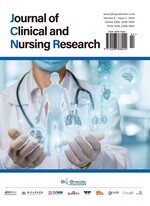Abstract
Objective: To evaluate the therapeutic effect of enteral nutrition + probiotics in patients with gastrointestinal dysfunction after severe craniocerebral injury. Methods: From September 2018 to February 2023, 80 patients (20–82 years old) with gastrointestinal dysfunction who were admitted to the Intensive Care Unit at the Third People’s Hospital of Xining were included in the study. Their primary condition was severe craniocerebral injury, and all of them received conventional symptomatic treatment. Group A received enteral nutrition + probiotic therapy, whereas group B received enteral nutrition only. The differences in the following indicators were compared before and after treatment: nutritional and biochemical indicators, gastrointestinal function indicators, Glasgow Coma Scale (GCS), Sequential Organ Failure Assessment (SOFA), APACHE II score, serum procalcitonin (PCT), neutrophil (N) ratio, and C reactive protein (CRP). Result: The nutritional and biochemical indicators in group A were higher than those in group B, P < 0.05; the time to first passage of flatus, time to first passage of stool, and bowel sound recovery time in group A were shorter than those in group B, P < 0.05; the GCS of group A was higher than that of group B, P < 0.05; the SOFA and APACHE Ⅱ scores of group A were not different from those of group B, P > 0.05; and the PCT, N ratio, and CRP levels of group A were lower than those of group B, P < 0.05. Conclusion: In patients with gastrointestinal dysfunction after severe craniocerebral injury, enteral nutrition + probiotic therapy is highly effective and feasible, as it can optimize various nutritional indicators, shorten the gastrointestinal function recovery time, and reduce the body’s stress response.
References
Shen J, Shu J, Lu K, et al., 2021, Discussion on the Effectiveness of Enteral Nutrition in the Treatment of Gastrointestinal Dysfunction After Severe Craniocerebral Injury. Medical Diet Therapy and Health, 19(22): 49–50.
Qin Y, 2020, Clinical Efficacy of Enteral Nutrition Combined with Probiotics in the Treatment of Gastrointestinal Dysfunction After Severe Traumatic Brain Injury. Chinese Medicine and Clinic, 20(20): 3414–3416.
Liang B, 2019, Clinical Observation of Enteral Nutrition Combined with Probiotics in the Treatment of Gastrointestinal Dysfunction After Severe Traumatic Brain Injury. Anhui Medicine, 23(3): 605–608.
Jin B, Luo F, 2021, Clinical Study on Lactobacillus Acidophilus Combined with Mosapride in the Treatment of Gastrointestinal Dysfunction After Craniocerebral Injury. World Chinese Journal of Digestion, 29(19): 1130–1137.
Wen Z, 2020, Evaluation and Analysis of Early Enteral Nutritional Support Therapy for Patients with Severe Craniocerebral Injury. Contemporary Medicine, 18(5): 88–90.
Ye J, Lin L, Yang J, et al., 2020, Study on the Effect of Early Rational Enteral and Parenteral Nutrition on the Nutritional Status of Comatose Patients After Severe Craniocerebral Injury. Chinese Medicine Science, 10(7): 256– 259.
Wang J, Shi X, Sun X, et al., 2020, Application and Effect of Early Enteral Nutrition Nursing in Patients with Severe Craniocerebral Injury. Chinese Clinical Research, 33(7): 1003–1005.
Dai Z, Ji Z, Pan H, et al., 2021, Effect of Early Enteral Nutrition on Inflammatory Response and Gastrointestinal Function in Patients with Severe Traumatic Brain Injury. Chinese Modern Doctor, 59(19): 43–44.
Xie Q, 2021, The Effect of Early Enteral Nutrition on Intestinal Function in ICU Elderly Patients with Severe Traumatic Brain Injury. Drama Movie Monthly, 9(18): 51–52.
Xia Y, 2021, Discussion on the Effectiveness and Application of Enteral Nutrition Nursing Guidelines in the Nursing of Patients with Severe Craniocerebral Injury. Chinese Science and Technology Journal Database (Full Text Version) Medicine and Health, 7(9): 23–24.
